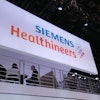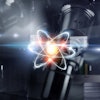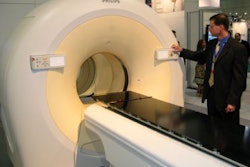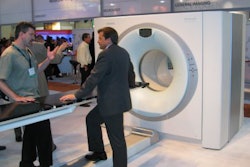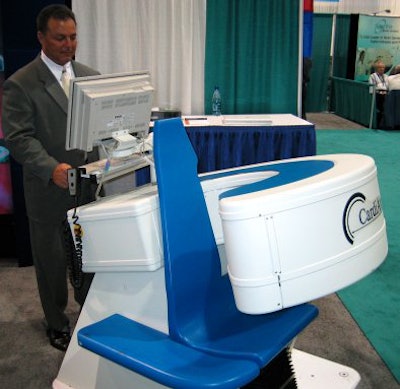
A new entrant on the nuclear medicine scene demonstrated its cardiac SPECT camera at this week's Society of Nuclear Medicine (SNM) meeting. CardiArc of Lubbock, TX, hopes its new camera will prove to be a better SPECT option for cardiology practices than current designs on the market.
CardiArc's system places the patient in a chair rather than on a table, with the system's detectors housed in an assembly that curves around the patient in a C-shaped arc. Neither the chair nor the detector array move during the study; instead, collimators inside the detector array shift back and forth to produce the different angles required to measure scintillation events for SPECT studies. The detectors are based on sodium iodide crystals; earlier CardiArc iterations used cadmium zinc telluride solid-state digital detectors.
The advantage of CardiArc's design is that it can conduct a cardiac scan in 2.5-3 minutes, versus 12-20 minutes for a typical dual-head 90-degree gamma camera, according to Dr. Jack Juni, chairman and chief technical officer of the company. Other advantages to the camera include its small size and lead shielding on the back of the system that enables technologists to remain in the room during a study.
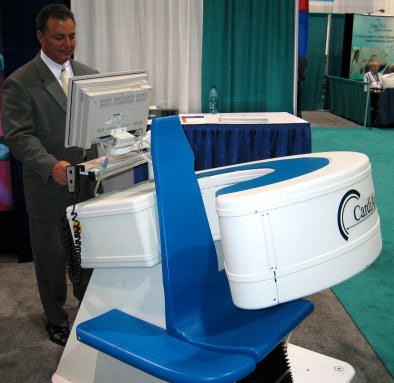 |
| CardiArc will target its SPECT camera at cardiology practices and hospitals. |
CardiArc received U.S. Food and Drug Administration clearance for the system earlier this year, and plans to begin shipping production units by the end of 2006 or early 2007. The company is assembling a sales team and hopes to sell the system at a list price of $260,000.
By AuntMinnie.com staff writers
June 7, 2006
Related Reading
CardiArc taps COO, June 5, 2006
CardiArc receives FDA nod for SPECT unit, January 25, 2006
CardiArc seeks clearance for SPECT, November 23, 2005
CardiArc signs investment banker, September 5, 2005
Copyright © 2006 AuntMinnie.com



